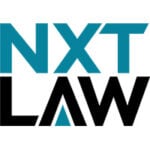-
Please provide a high-level overview of the blockchain market in your jurisdiction. In what business or public sectors are you seeing blockchain or other distributed ledger technologies being adopted?
Turkey ranks among the leading countries globally in terms of blockchain technology and crypto-asset usage. According to 2023 data, Turkey placed fourth worldwide with approximately USD 170 billion in raw crypto transaction volume; it is estimated that around 52% of Turkish adults between the ages of 18 and 60 own some form of cryptocurrency. This strong public interest has accelerated the development of a comprehensive regulatory framework.
Key sectors adopting blockchain technology:
- Financial Sector:
Blockchain has found its widest application in financial services. Investing and trading in crypto assets is highly popular in Turkey, with one of the highest transaction volumes in the region. Numerous domestic exchanges operate in the market. Traditional banks are also exploring blockchain: for example, İşbank conducted Turkey’s first blockchain-based international trade finance transaction in May 2020. Takasbank, the central clearing house of Borsa İstanbul, developed the “BiGA” project, a blockchain system for transferring digital tokens backed by physical gold. Takasbank has also created an institutional blockchain infrastructure called “TAKASCHAIN.” These examples illustrate the growing use of blockchain for payments, trade finance, and securities custody. - Public Sector Applications:
The Central Bank of the Republic of Turkey (CBRT) launched the Digital Turkish Lira Project (CBDC) in 2021, successfully completing its first pilot payments at the end of 2022. By 2023, the project entered its second phase, testing new use cases with the participation of banks and fintech companies. - Supply Chain and Logistics:
Pilot projects are underway in sectors such as food, agriculture, and pharmaceuticals to enhance product traceability and transparency via blockchain. The goal is to record a product’s journey from origin to consumer in an immutable manner, preventing counterfeiting and quality control issues. Logistics and retail firms are also studying how blockchain can improve efficiency in stock management and cross-border trade. - Automotive and Industry:
Turkey’s domestic electric car brand TOGG has partnered with the blockchain platform Avalanche to integrate Web3 and mobility ecosystem applications. This initiative includes blockchain use for inter-vehicle data sharing, smart device integration, and digital asset services for users (such as NFT-based certificates for vehicle usage). Industrial sectors are also exploring blockchain for supply, production, and IoT integration. - Digital Art, Gaming, and NFTs:
Blockchain has become prominent in digital collectibles and art. Turkish digital artists (notably Pak and Refik Anadol) have achieved global success in NFT markets, leading to wide public recognition of NFTs in Turkey. The gaming industry has shown growing interest in blockchain-based in-game assets and metaverse applications. Though still unregulated, this area raises important questions about intellectual property and consumer protection.
In summary, blockchain technology in Turkey is gaining momentum across both the private and public sectors. Financial services and payments remain at the forefront, followed by public services, supply chain management, automotive, and digital content industries. The legal framework is evolving in parallel with these developments.
- Financial Sector:
-
Please outline the principal legislation and the regulators most relevant to the use of blockchain technologies in your jurisdiction. In particular, is there any blockchain-specific legislation or are there any blockchain-specific regulatory frameworks in your jurisdiction, either now or envisaged in the short or mid-term?
Legal regulations regarding blockchain and crypto assets in Turkey have accelerated significantly in recent years. For a long time, there was no comprehensive, sector-specific law; the area was governed through various general regulations and administrative decisions. However, in July 2024, a comprehensive legal framework entered into force for the first time.
On 2 July 2024, amendments added to the Capital Markets Law No. 6362 established the first formal legal framework for crypto assets. Law No. 7518, which amended the Capital Markets Law, defined crypto assets and crypto asset service providers and authorized the Capital Markets Board of Turkey (CMB) as the competent regulatory authority in this field. The law defines basic concepts such as “crypto asset,” “wallet,” and “platform,” and provides that crypto assets are “intangible assets that can be created and stored electronically using distributed ledger technology or similar technology, can be distributed through digital networks, and may represent value or rights.” This definition is broad enough to encompass all blockchain-based digital tokens.
With this law, the CMB was granted authority to determine the principles and procedures applicable to crypto assets that qualify as capital market instruments, to issue licenses and operating permits for crypto platforms, and to supervise their activities. Following the law’s entry into force, the CMB published a series of Principle Decisions throughout 2024 and, in March 2025, issued four Communiqués as secondary legislation. These introduced detailed obligations for crypto platforms regarding licensing applications, capital adequacy, management qualifications, IT infrastructure, client contract terms, and asset custody procedures.
The first regulation prohibiting the use of cryptocurrencies as a means of payment in Turkey was issued by the Central Bank of the Republic of Turkey (CBRT) on 16 April 2021. The Regulation on the Use of Crypto Assets in Payments defined crypto assets and prohibited their direct or indirect use in the payment of goods and services. It also stipulated that payment and electronic money institutions may not provide services involving the purchase, sale, transfer, or custody of crypto assets. This secondary regulation, not based on a primary law, was the first specific piece of legislation concerning crypto assets in Turkey. In summary, crypto assets are not a legal means of payment and cannot be used for any goods or services payments; payment service providers are prohibited from intermediating crypto asset transactions.
Crypto asset service providers were included within the scope of “obliged entities” by a Presidential Decree issued in May 2021. Through amendments to the Law No. 5549 on the Prevention of Laundering Proceeds of Crime and its related regulations, crypto trading platforms, OTC brokers, and custody service providers were made subject to the Financial Crimes Investigation Board (MASAK) obligations, such as Know Your Customer (KYC) and Suspicious Transaction Reporting. MASAK also published specific guidelines for the crypto sector, notably the Guidelines for Crypto Asset Service Providers in 2021, outlining compliance principles. Under these guidelines, MASAK requires crypto platforms to report suspicious transactions exceeding TRY 75,000, verify all user identity information, and retain transaction records for eight years. These rules form part of Turkey’s effort to align with FATF (Financial Action Task Force) standards.
Prior to the 2024 law, the CMB did not play a direct regulatory role in the crypto sector, though it occasionally issued investor warnings. Following the enactment of the new law, however, the CMB became the primary regulatory authority. The CMB now has the power to grant licenses to crypto asset service providers, set minimum capital and governance standards for platforms, and issue secondary regulations on the issuance of crypto assets.
For instance, in August 2024, the CMB published Principle Decision No. 42/1259, outlining the requirements for establishing and applying for a crypto platform license. Subsequently, in September 2024, Principle Decision No. 1484 introduced detailed provisions governing the transition process for existing exchanges and their operational rules — such as the requirement to hold client assets in bank accounts, maintain order logs, and restrictions on market-making using their own funds.
The CMB is also authorized to regulate public offerings, trading, and custody of crypto assets that qualify as capital market instruments. Under the new regime, operating a crypto trading platform or performing intermediary activities without CMB authorization constitutes a criminal offense punishable by imprisonment.
Is there a specific law dedicated to blockchain technology?
The 2024 crypto asset regulation was introduced through amendments to the Capital Markets Law, meaning there is no standalone “Blockchain Law.” While a licensing regime has been established for crypto asset service providers, there is not yet an overarching statute covering all applications of blockchain technology. The current framework focuses primarily on crypto assets within the contexts of capital markets regulation and anti-financial crime compliance.
-
What is the current attitude of the government and of regulators to the use of blockchain technology in your jurisdiction?
The Turkish government’s approach to blockchain technology can be summarized as measured optimism. In official discourse, while the innovative potential of blockchain is emphasized, a cautious stance is maintained regarding the risks that cryptocurrencies may pose. The steps and statements made by authorities in recent years demonstrate that the government seeks to fully embrace blockchain technology, yet aims to keep the crypto asset market under strict supervision.
Positive approach and supportive actions:
- Technology and Digitalization: Turkey has identified blockchain as a technology that should be developed within various development plans and digital strategy documents. For example, in the 11th Development Plan published in 2019, blockchain was listed—alongside artificial intelligence—as one of the priority digital transformation technologies. The Digital Transformation Office of the Presidency carries out projects aimed at integrating blockchain into e-Government services. The government explores the use of blockchain to ensure the secure and immutable recording of public data and to enhance transparency and efficiency in procurement and supply processes.
- Central Bank Digital Currency (CBDC) Initiative: The Central Bank of the Republic of Turkey (CBRT)’s Digital Turkish Lira Project reflects the government’s perspective on blockchain-based financial innovation. This project, conducted under government support, represents the most concrete blockchain initiative in the country. Preparations for pilot studies began in 2020, the first digital lira transfer was executed in 2022, and the second-phase pilots have been ongoing between 2023 and 2025 with private-sector participation.
- Establishing the Legal Framework: Although the government left the crypto market largely unregulated for a long period, it has recently accelerated efforts to prepare legislation. Indeed, draft law studies were carried out throughout 2022 and 2023, and finally, in 2024, the law authorizing the Capital Markets Board of Turkey (CMB) was enacted by Parliament. This demonstrates that the government prefers to permit crypto assets within a regulatory framework rather than impose an outright ban. Since the new law was prepared with an emphasis on compliance with international standards, it also shows that the government closely follows FATF and EU norms in crypto regulation.
- State-Supported Research and Development: Turkey’s leading research and technology institution, TÜBİTAK (The Scientific and Technological Research Council of Turkey), has established a dedicated Blockchain Research Laboratory and actively participates in developing technical standards for the entire sector, demonstrating national commitment to building domestic expertise in this field.
Cautious and restrictive stance:
- Prohibition on Crypto Payments: The government and regulators have clearly opposed the use of cryptocurrencies as a payment instrument that could replace the Turkish Lira. The regulation published by the CBRT in April 2021 is the most concrete example of this position. The rationale provided includes consumer protection, potential harm from high volatility, and risks to monetary policy. Similarly, public institutions do not accept cryptocurrencies in their transactions; taxes, duties, and fees can only be paid in official currencies. This reflects the government’s view of cryptocurrencies as investment and asset instruments rather than as means of payment within the national financial system.
- FATF Grey List: In October 2021, Turkey was placed on the FATF Grey List due to deficiencies in combating money laundering and terrorist financing. This development prompted the government to adopt a stricter stance on financial oversight, including in the crypto asset sector, as FATF requires member states to effectively supervise crypto-asset service providers. Turkey’s positive steps in combating money laundering and terrorist financing were acknowledged in the FATF report dated 20 July 2023, and in the report of 28 June 2024, Turkey was announced to have been removed from the grey list.
- Regulatory Enforcement Actions: Regulatory authorities have taken strict measures against crypto-related activities operating outside the legal framework. For example, following the collapse of the Thodex, Vebitcoin, and Goldexco.in exchanges and the ensuing fraud allegations, judicial authorities immediately intervened; MASAK froze the relevant bank accounts and launched investigations into the companies. Similarly, the CMB imposed administrative fines on individuals engaged in unauthorized crypto-asset consulting or unlicensed portfolio management.
In Turkey, both the government and regulatory institutions support the development of blockchain technology and the adoption of innovative applications in the country. At the same time, they aim to keep the crypto-asset market under control to minimize consumer harm, financial crime risks, and macro-financial threats. The tangible reflections of this balancing policy include the implementation of initiatives such as the Digital Lira and e-Government blockchain projects on one hand, and the introduction of restrictive measures such as the prohibition of crypto payments, licensing of exchange operations, and stringent AML supervision on the other.
Overall, Turkey is among the countries that have established a regulatory framework for the trading and custody of crypto assets, thereby positioning itself as a regional leader. The regulations that entered into force in 2024 closely parallel the European Union’s Markets in Crypto-Assets Regulation (MiCA). Both regimes are built on principles of investor protection, licensing requirements, capital adequacy, and AML obligations. However, Turkey’s legislation differs from MiCA in that it establishes a more centralized licensing system (CMB approval) and completely prohibits the use of crypto assets as a means of payment. In contrast, MiCA allows payment-based stablecoins within certain limits in the EU, whereas Turkey has not yet introduced specific regulation for such assets.
-
Is there a central bank digital currency (‘CBDC’) project in your jurisdiction? If so, what is the status of the project?
The Digital Turkish Lira Project is a multi-phase initiative conducted by the Central Bank of the Republic of Turkey (CBRT), aiming to explore and research Turkey’s potential Central Bank Digital Currency (CBDC). The project was first placed on the agenda during 2019–2020 and has transitioned to concrete pilot implementations over the past few years. The key highlights regarding the project’s current status and future direction are as follows:
- Phase One and Initial Pilot Payment:In 2021, the CBRT established the Digital Turkish Lira Collaboration Platform in cooperation with technology companies such as ASELSAN and HAVELSAN, as well as TÜBİTAK (The Scientific and Technological Research Council of Turkey). Within this platform, the technical infrastructure of the digital currency began to be developed. At the end of 2022, the CBRT announced that it had successfully executed the first pilot transaction of a digital lira transfer. In a report published by the CBRT in 2023 (made publicly available in both Turkish and English), the findings of the first-phase pilot tests were evaluated. The main outcome of this phase was the confirmation of a two-tier payment model for the operation of the digital lira: according to this model, the CBRT will manage the issuance and destruction mechanism, while intermediary banks will provide digital wallets to end users. It was also reported that a smart contract–based “conditional payment” function was tested, enabling automated payment flows once certain pre-defined conditions were met.
- Phase Two and Private Sector Participation: As of 2023, the Digital Turkish Lira Project entered its second phase. In this stage, the CBRT invited private-sector organizations to join the project in order to expand pilot activities and assess different use cases. In September 2025, the Central Bank issued a “Call for Participation in the Digital Turkish Lira Project Ecosystem” addressed to companies operating in the finance and technology sectors. This call invited firms to develop projects across five focus areas: tokenization, programmable payments, self-sovereign identity, interoperability with existing systems, and machine-to-machine payments. This step demonstrates the CBRT’s intention in the second phase to test the digital lira in various application fields and to enrich the surrounding ecosystem. In particular, the integration of programmable money and identity verification aims to highlight the innovative features of the digital lira that distinguish it from traditional payment systems.
From 2025 onwards, the project is expected to advance into its third phase, involving broader public pilots and potential steps toward limited real-world use. The CBRT has stated that the digital lira is not intended to replace cash but rather to complement the existing payment systems. The final decision regarding full-scale implementation will depend critically on the outcomes of the pilot phases. It can be said that Turkey is closely following the global trend in central bank digital currency development and aims to achieve tangible results within a similar timeframe. The CBRT monitors and takes inspiration from comparable projects such as the European Central Bank’s Digital Euro initiative and the CBDC experiments of other countries, including China and Sweden, when shaping its own project.
-
What is the current approach in your jurisdiction to the treatment of cryptoassets and decentralised finance (‘DeFi’) for the purposes of financial regulation?
The regulatory treatment of crypto assets in Turkey has undergone significant changes over the past few years. With the enactment of the new law in 2024, official definitions of crypto assets were introduced, and their legal status began to be clarified. On the other hand, Decentralised Finance (DeFi) applications have not yet been directly addressed by specific legislation and are instead assessed within the framework of general legal principles.
Legal Status and Classification of Crypto Assets: Under the new law, crypto assets are defined as “intangible assets.” While the law does not distinguish between different types of crypto assets, it grants the Capital Markets Board of Turkey (CMB) the authority to regulate specific categories when necessary. The law requires that crypto-asset trading platforms and custody service providers obtain authorization from the CMB. To be licensed, platforms must meet certain capital requirements, ensure that their founders satisfy financial strength and integrity criteria, and maintain information systems compliant with the standards overseen by both the CMB and TÜBİTAK (The Scientific and Technological Research Council of Turkey).
The Principle Decisions issued by the CMB in 2024 set out how existing crypto exchanges can apply for and obtain operating licenses. Pursuant to the law, providing such services without authorization is subject to severe criminal penalties. Accordingly, from a financial regulatory perspective, crypto-asset trading is now considered a licensed and supervised activity in Turkey.
Position of DeFi (Decentralised Finance) Applications: The term DeFi serves as an umbrella concept for financial applications and protocols on blockchain networks that use decentralized systems to transform traditional financial products into trustless and transparent services without intermediaries. In Turkey, there is currently no specific legislation or official guideline addressing DeFi protocols. Because most DeFi applications are not centralized businesses tied to any specific jurisdiction, Turkey’s new law does not directly apply to such structures. Indeed, the “platform” concept defined in the 2024 regulation refers exclusively to authorized and locally established service providers.
Therefore, the new framework targets identifiable and licensable legal entities—such as crypto-asset service providers (CASPs)—while leaving outside its scope those DeFi protocols that operate autonomously through self-executing smart contracts. At present, DeFi remains a grey area, and users engage with these platforms at their own discretion and risk.
Nonetheless, the Turkish banking and fintech sectors have begun testing certain components of DeFi through pilot projects while remaining within regulatory boundaries. For example, BiLira, the first Turkish Lira–pegged stablecoin, is a Turkey-based digital asset used within DeFi protocols; it participates in liquidity pools on networks such as Ethereum and Avalanche and is traded on decentralized exchanges. Similarly, MisyonBank’s initiatives to develop digital-asset infrastructure with a DeFi focus reflect the Turkish financial industry’s growing interest in DeFi principles.
Although regulators in Turkey have so far left DeFi as an unregulated domain, the approaches of the CMB and MASAK (Financial Crimes Investigation Board) may in the future evolve to focus on the risks posed by these protocols—particularly in the areas of investor protection and anti–money laundering (AML) compliance.
-
What is the current approach in your jurisdiction to the treatment of cryptoassets and DeFi for the purposes of anti-money laundering and sanctions?
Turkey has implemented a comprehensive and increasingly stringent Anti–Money Laundering (AML) and Counter–Terrorist Financing (CTF) framework applicable to centralized service providers in the crypto-asset sector. However, as is the case globally, AML monitoring and enforcement present challenges in the context of decentralized finance (DeFi).
Crypto Asset Service Providers (CASPs) are officially defined as “obliged entities” under Turkey’s main anti–money laundering legislation, the Law No. 5549 on the Prevention of Laundering Proceeds of Crime, and are directly supervised by the Financial Crimes Investigation Board (MASAK). MASAK is the authority responsible for combating money laundering and the financing of terrorism in Turkey. Through a regulation introduced in April 2021, crypto-asset service providers were added to MASAK’s list of “obliged institutions.” Consequently, companies operating in the crypto sector are now subject to the same AML obligations as banks, payment institutions, or capital markets intermediaries. The main obligations are as follows:
Customer Due Diligence (Know Your Customer – KYC): Crypto platforms are required to perform full identity verification for all clients. This requirement applies to any transaction or series of connected transactions amounting to TRY 15,000 or more. This threshold has recently been significantly reduced to ensure greater due diligence.
Suspicious Transaction Reporting (STR): Platforms must report unusual or suspicious transactions to MASAK. Furthermore, if there is any suspicion that a transaction—regardless of its amount—involves proceeds of crime, it must also be reported. Examples include large crypto transfers with unverified sources, transaction patterns that may indicate terrorist financing, or wallet movements linked to darknet activity.
Record-Keeping and Documentation: Crypto service providers are required to retain records of all customer transactions for a minimum of eight years.
Travel Rule: In line with the recommendations of the Financial Action Task Force (FATF), crypto platforms must collect, verify, and transmit required originator and beneficiary information not only for crypto transfers but also when interacting with other financial institutions or service providers.Crypto-Specific Enhanced Measures: MASAK has introduced several control measures tailored specifically to cryptocurrencies, extending beyond standard AML requirements. These include:
- The imposition of a “cooling-off” period during which deposited, purchased, or newly acquired crypto assets cannot be withdrawn for at least 48 hours.
- For a customer’s first withdrawal transaction, this period is extended to a minimum of 72 hours.
Sanctions and Audits: MASAK has begun conducting audits to ensure AML compliance within the crypto sector. As of 2023, the total amount of fines imposed by MASAK during its inspections of the crypto industry is reported to be around ₺85 million, demonstrating that MASAK is closely monitoring the sector as part of Turkey’s broader efforts to combat financial crime.
-
What is the current approach in your jurisdiction to the treatment of cryptoassets and DeFi for the purposes of taxation?
The taxation of crypto assets in Turkey is still not clearly defined; however, it is evaluated within the framework of the general provisions of the existing tax legislation. With the enactment of Law No. 7518 in 2024, which introduced amendments to the Capital Markets Law, certain sector-specific financial obligations were imposed.
Within this scope, licensed crypto-asset service providers (platforms) operating in Turkey are required each year to transfer 1% of all revenues excluding interest income to the Capital Markets Board of Turkey (CMB) and 1% to the Scientific and Technological Research Council of Turkey (TÜBİTAK). These shares are calculated based on the turnover (gross income) of the platforms, and no exemptions or exceptions are provided. When these two obligations are considered together, 2% of the total revenues of platforms are transferred to the public authorities. Since this amount is deducted directly from gross income, it creates a significant financial burden, especially for crypto exchanges operating with low profit margins. In practice, although these payments are classified as regulatory contributions rather than a “tax” in the traditional sense, they constitute an indirect tax burden in economic effect.
Apart from this, with respect to individuals, the Revenue Administration of Turkey holds the view that individuals who earn income on a continuous basis from the purchase and sale of crypto assets must declare such income. If a person conducts numerous transactions and earns regular income, such income may be considered commercial income and therefore taxable under the Income Tax Law. On the other hand, there are interpretations suggesting that if an individual occasionally sells crypto assets and earns a small amount, no tax liability would arise. However, there is no binding communiqué or private ruling published on this matter. Due to this uncertainty, many individual investors do not declare their crypto earnings, and the Revenue Administration has not yet carried out extensive audits on this issue.
The issue of whether cryptocurrencies are subject to Value Added Tax (VAT) also remains uncertain. In the European Union, the Court of Justice of the European Union (CJEU) has ruled that the exchange of cryptocurrencies should be treated as a foreign exchange transaction and thus exempt from VAT. Although there is no official position yet in Turkey, the prevailing tendency is to consider cryptocurrencies as money-like instruments and therefore not subject them to VAT. In other words, although the use of crypto in the purchase of goods or services is prohibited, a barter transaction conducted technically could give rise to VAT; however, due to this prohibition, such transactions do not occur in practice. Despite this grey area, no VAT is applied to crypto trading commissions in practice.
Regarding other taxes, for example, when a person passes away, are the crypto assets left to their heirs subject to inheritance and transfer tax? By law, all assets of a deceased person are subject to inheritance tax. Since crypto assets also constitute a form of property value, they must, in principle, be included in the inheritance tax base. However, in practice, heirs are often unaware of the existence of such crypto assets or may fail to report their value to the relevant authorities.
-
Are there any prohibitions on the use or trading of cryptoassets in your jurisdiction? If permitted, is cryptoasset trading common?
Under Turkish law, it is legal for individuals and companies to purchase, hold, or sell cryptocurrencies. Just like any other asset, owning crypto assets and using them for investment purposes is entirely permitted. There are numerous cryptocurrency exchanges operating in Turkey, and trading on these exchanges is legal (of course, exchanges are now required to obtain a license, but there is no legal restriction for users).
However, under the Regulation issued by the Central Bank of the Republic of Turkey (CBRT) that has been in effect since April 2021, crypto assets may not be used as a means of payment. In other words, it is unlawful to make payments directly with cryptocurrencies when purchasing goods or services. For example, paying a restaurant bill in Bitcoin or purchasing a product on an e-commerce website using crypto is prohibited. The scope of this prohibition includes both “direct and indirect” usage; therefore, services that act as intermediaries for crypto payments are also prohibited.
When trading on cryptocurrency exchanges operating in Turkey, all entry and exit transactions must be conducted exclusively in Turkish Lira (TRY). Users who wish to buy crypto assets must first deposit TRY through their bank accounts; similarly, when they sell their crypto assets and wish to withdraw funds, they can only do so in TRY. While crypto-to-crypto transfers (for example, USDT–BTC) are possible within platforms, fiat inflows and outflows in foreign currency or stablecoins are not permitted.
Banks, under current regulations, are not allowed to provide direct cryptocurrency trading services to their clients. For instance, one cannot go to a bank branch and purchase Bitcoin, nor can banks offer crypto investment products such as ETNs or funds. On the other hand, new regulations allow banks to provide crypto custody services without restriction. According to the Capital Markets Board (CMB) regulations, licensed platforms may store client crypto assets in banks or CMB-approved custodial institutions.
In conclusion, buying and selling crypto assets in Turkey is legally permissible and widely practiced. The only clear prohibition concerns their use in payment transactions. Apart from this, as long as the new licensing regulations are complied with, the operation of the crypto market remains lawful and legitimate.
-
To what extent have initial coin offerings (‘ICOs’) taken place in your jurisdiction and what has been the attitude of relevant authorities to ICOs? If permissible, what are the key requirements that an entity would need to comply with when launching an ICO?
The concept of an Initial Coin Offering (ICO) refers to blockchain projects raising funds by selling their own tokens. In Turkey, the legal framework regarding ICOs has remained unclear, which has caused past initiatives to operate largely amid uncertainty, with regulatory authorities maintaining a cautious stance.
In September 2018, the Capital Markets Board of Turkey (CMB) issued a public announcement in its weekly bulletin concerning ICOs, stating that such token sales involve high levels of risk and speculation. The CMB emphasized that most ICO projects fall outside its regulatory scope but nevertheless pose significant risks to investors due to the absence of supervision and oversight mechanisms. The same bulletin noted that some fundraising activities conducted through ICOs could, under existing legislation, be considered unauthorized public offerings or unlicensed crowdfunding. The CMB also implied that preparations for secondary regulations concerning ICOs were underway and announced that such activities would be closely monitored in the meantime.
Regulatory authorities—particularly the CMB—have consistently maintained a prudent approach toward ICOs. In its 2018 statement, the CMB stressed that ICOs are not subject to regulation and that investors risk losing all of their funds. The crypto-asset regulation that entered into force in 2024 does not explicitly refer to the concept of ICOs, but it defines the activity of “initial sale or distribution on platforms” and grants the CMB the authority to regulate this area. This wording implies that token issuances similar to ICOs may henceforth be conducted under the supervision of the CMB and through licensed platforms.
Accordingly, following the enactment of the new law, the CMB adopted Principle Decisions establishing the rules for public offerings of crypto assets through platforms. For instance, platforms are now required to implement a “listing procedure” before deciding to list any crypto asset. This procedure must include a detailed evaluation of the project, transparency requirements, and investor disclosure obligations. Furthermore, under the new framework, it is explicitly stated that the listing of a crypto asset on a platform does not imply approval by any public authority, and investors must be warned accordingly.
Although no such example currently exists in practice, it is expected that in the future, any project wishing to conduct a token sale in Turkey will be required to do so through a licensed exchange in full compliance with CMB regulations. In effect, this will bring ICOs in Turkey closer to traditional public offering processes.
Therefore, an entrepreneur intending to conduct an ICO or an investor considering participation in one should proceed with caution during this transitional period and closely follow the secondary regulations to be issued by the CMB.
-
Are there any legal or regulatory issues concerning the transfer of title to or the granting of security over cryptoassets?
Although crypto assets have only recently been legally defined in Turkey, they have begun to be recognized as tangible components of property value. In this context, the transfer of ownership and the use of crypto assets as collateral are assessed in light of existing legal principles.
Transfer of Ownership: The ownership of crypto assets is obtained through control over the blockchain. Since crypto assets are considered intangible assets under Turkish law, their transfer is not subject to any official registration or specific formality requirement.
According to the regulations of the Capital Markets Board of Turkey (CMB), even if a customer’s crypto assets are held in wallets within a trading platform, ownership of those assets remains with the customer and is separate from the platform’s own assets. The key point to consider in the transfer of crypto assets is the irreversibility of the transaction. Once a crypto asset is transferred to another party, it cannot be retrieved without the recipient’s consent (because blockchain transactions are immutable). Therefore, the transfer of ownership effectively means the transfer of actual control, and it must be conducted with great caution.
There is no requirement for a written agreement to transfer crypto assets. Under the Turkish Code of Obligations, the general rule is freedom of contract and freedom of form. Since crypto transfers are usually carried out through digital platforms, the terms of use of these platforms govern the manner in which such transfers are executed.
Ownership in the Case of Inheritance: Crypto assets are transferred to the heirs of a deceased person. According to the Turkish Civil Code, all property rights of the deceased automatically pass to their heirs by operation of law. Therefore, a person’s crypto wallets and the balances contained therein legally belong to the heirs. However, in practice, accessing these assets may pose technical challenges. Nonetheless, they are still considered inheritable assets under the law.
Use of Crypto Assets as Collateral: In traditional law, collateral is generally established through mechanisms such as pledges on movables or mortgages on immovables. Although crypto assets are not physical movables, they can be treated as movable property (chattels). The Law No. 6750 on Pledge of Movables in Commercial Transactions, enacted in 2017, allows for the pledging of various movable assets such as machinery, vehicles, receivables, and intellectual property rights. Crypto assets are not explicitly listed in this law; however, they may be interpreted as falling under the category of “other movables.”
While it is legally possible to establish a commercial pledge over crypto assets, practical challenges remain regarding the creation and enforceability of such pledges against third parties—particularly how the delivery requirement can be satisfied. In addition, fluctuations in the value of crypto assets can significantly affect the collateral relationship. Unlike in conventional movable pledges, there is currently no specific regulation ensuring the preservation of collateral value; therefore, if the market value of a crypto asset declines, the creditor’s security may effectively disappear.
For this reason, when crypto assets are accepted as collateral, it is important that the parties contractually establish “value protection mechanisms”—for example, margin call provisions, automatic liquidation clauses, or stablecoin-based collateral arrangements.
In conclusion, within the framework of existing Turkish law, the use of crypto assets as collateral is theoretically possible, but due to practical and valuation challenges, it is an area that must be structured with caution. In the future, the introduction of specific regulations addressing value fluctuations of crypto collateral would enhance legal certainty for both lenders and borrowers.
-
How are smart contracts characterised within your legal framework? Are there any enforceability issues specific to the operation of smart contracts which do not arise in the case of traditional legal contracts?
Smart contracts are software codes that operate on a blockchain and automatically execute themselves when pre-defined conditions are met. Under Turkish law, there is no specific statute or provision that directly regulates smart contracts. Therefore, the validity and enforceability of smart contracts are determined according to the general principles of contract law.
According to the Turkish Code of Obligations (TCO), a contract is formed when the parties mutually and reciprocally declare their consent. Article 12 of the TCO establishes the principle of freedom of form, providing that unless otherwise stipulated by law, contracts may be concluded without being subject to any particular form. Within this framework, smart contracts can, in principle, constitute a valid contract under Turkish law. This is because, on a blockchain, two parties who participate in a smart contract protocol (by performing actions amounting to offer and acceptance) can be deemed to have expressed their mutual consent.
In legal doctrine, uploading a conditional transaction code onto the blockchain by one party may be regarded as an “offer”, and the other party’s act of approving and adding it to the network with their digital signature may be interpreted as an “acceptance.” In such a case, a contract would be deemed concluded within the meaning of the Turkish Code of Obligations. Furthermore, legal scholars argue that smart contracts recorded on a blockchain may satisfy the “written form” requirement, as the data—though in code form—is recorded in a permanent and readable manner, and the parties approve it using their private keys (analogous to applying a digital signature). Although this interpretation has not yet been tested before Turkish courts, it is considered important in terms of legal adaptation to technological developments.
Certain types of contracts under Turkish law, however, are subject to mandatory formal requirements. For example, a real estate sales promise contract must be executed in the form of a notarial deed; a surety agreement must be in writing and must include the surety’s handwritten indication of the guaranteed amount. Contracts that are subject to such statutory form requirements cannot be validly concluded through a smart contract, and if attempted, they would be legally invalid. For instance, a real estate sale has no legal effect unless completed before the land registry; attempting to execute such a transaction through code on a blockchain would have no legal consequence. Legal doctrine also confirms that contracts subject to official formality cannot be concluded via smart contracts.
In conclusion, while smart contracts may be considered a theoretically valid means of forming contracts under Turkish law, their applicability is limited in complex or negotiation-based contractual relationships due to their technological structure. Such contracts are mostly automated, coded, and unilateral declarations of intent, making it difficult to prove that the parties’ intentions were fully and consciously formed. As there is no process of negotiation or mutual assessment, it remains debatable how traditional contract law protections—such as those concerning defects of consent, mistake, or fraud—can be applied to this framework. Therefore, smart contracts cannot be considered suitable for every type of contract. Their applicability is quite limited in complex contractual relationships requiring clear and mutual expression of intent (such as partnership agreements, investment contracts, or service agreements). They may be an effective tool for simple and automatable transactions, such as the trading of crypto assets or specific financial transfers; however, beyond that, there are serious legal uncertainties regarding their validity as substitutes for traditional contracts.
-
How are Decentralised Autonomous Organisations (‘DAOs’) treated in your jurisdiction?
Decentralised Autonomous Organizations (DAOs) are organizations that operate on a blockchain and are governed by smart contracts, without any hierarchical or centralized authority. As a legally new concept, DAOs do not have a recognized legal status in most jurisdictions. In Turkey, there is no specific legal status or definition for DAOs under the current legislation. Since a DAO is governed by immutable code and, in most cases, lacks any registered legal entity, it remains undefined under Turkish law. Consequently, entities wishing to operate as a DAO in Turkey would, in practice, not possess the legal personality shield that a corporate entity would otherwise provide.
The regulatory approach in Turkey toward DAOs is currently nonexistent—that is, there has been no explicit supportive or prohibitive stance taken by the authorities. However, if DAOs become more widespread in the future, it is possible that, considering the legal risks arising from this regulatory gap, steps may be taken either to recognize or to limit them.
-
Have there been any governmental or regulatory enforcement actions concerning blockchain in your jurisdiction?
In Turkey, individuals and entities operating in the blockchain and crypto-asset sector have, from time to time, been subjected to sanction measures by the government and regulatory authorities. These sanctions have generally been imposed with the aim of preventing illegal activities, protecting investors, or penalizing non-compliance with regulations. Below are the most notable enforcement actions and precedent-setting cases recorded to date:
In 2021, Turkey was shaken by the collapse of two domestic crypto exchanges in succession. In April 2021, the platform Thodex suspended its operations, and its founder fled abroad; shortly thereafter, the Vebitcoin exchange also ceased its activities. The state reacted promptly to these developments. The Financial Crimes Investigation Board (MASAK) immediately froze the bank accounts of Thodex and Vebitcoin in Turkey to prevent the remaining funds of defrauded investors from being transferred out of the country. Simultaneously, criminal investigations were initiated against the executives of both exchanges.
The Thodex case represents the most severe enforcement action in the blockchain sector in Turkey: it resulted in consequences both in criminal law (prison sentences exceeding ten thousand years) and in administrative measures (such as asset freezes and the revocation of the company’s operating license).
MASAK has not hesitated to impose monetary fines on crypto companies that violated their obligations. In December 2021, Binance’s Turkey operations (BN Teknoloji) were fined ₺8 million, marking the first such sanction. MASAK’s inspections continued throughout 2022–2023, and it was reported that a total of approximately ₺85 million in penalties had been imposed. The main reasons for these fines included KYC deficiencies, failure to report suspicious transactions, or delayed reporting—all constituting AML violations. In addition, during 2023—prior to the introduction of the new licensing regime—MASAK reviewed the operations of several smaller exchanges and issued advisory warnings to them.
The Advertising Board announced in 2022 that it would scrutinize crypto-asset advertisements. Within this scope, a corrective warning was issued regarding the wording in a television advertisement by a domestic exchange. Moreover, celebrity crypto-sponsored posts on platforms such as Instagram were examined, and fines were imposed if they failed to clearly indicate that the posts were advertisements. For example, in 2021, a famous football player made a promotional post praising a particular altcoin; it was later discovered that the post constituted paid advertising without disclosure, and the Advertising Board imposed an administrative penalty. This serves as an example of a consumer-protection-based sanction within the crypto space.
In summary, enforcement actions in Turkey’s blockchain and crypto sector have primarily targeted criminal conduct and regulatory violations. In light of these examples, it can be said that sanctions in the blockchain field in Turkey are selective but decisive when necessary. The government and regulators have taken swift and firm action against misconduct, sending a clear message to industry participants: failure to comply with the rules will result in serious administrative and criminal consequences.
-
Are there any other generally-applicable laws, case law or regulations that may present issues for the use of blockchain technology (such as privacy and data protection law or insolvency law)?
Blockchain technology, by its very nature, intersects with numerous branches of law. Under Turkish law, there are various generally applicable laws, precedents, and regulations that may create challenges regarding the use of blockchain technology.
- Personal Data Protection: One of the fundamental features of blockchain is the immutability of data. However, the Law on the Protection of Personal Data (KVKK) grants individuals the right to request the erasure, destruction, anonymization, or rectification of their personal data. How a personal datum recorded on a blockchain can be deleted or corrected within the scope of these rights poses a significant technical and legal challenge.
- Enforcement and Bankruptcy Law: The seizure and treatment of crypto assets and other blockchain-based values in enforcement and bankruptcy proceedings present major legal uncertainties. It is unclear how assets existing on the blockchain—particularly those to which only the debtor holds the private keys—can be identified, legally and practically seized, or included in the bankruptcy estate. Another major issue is how volatile assets such as cryptocurrencies can be valued fairly during enforcement or insolvency proceedings. The fact that blockchain assets and their owners may be located in different jurisdictions also raises difficulties in determining the competent court and in the recognition and enforcement of foreign court or enforcement decisions in Turkey.
- Law of Obligations: The legal nature of smart contracts, their validity as contracts, the formation of declarations of intent, and how issues such as mistake or fraud would be handled all require interpretation through the existing principles of the Turkish Law of Obligations.
- Intellectual Property Law: The software, smart contract codes, and algorithms created within blockchain projects may qualify as intellectual works. Accordingly, the Law No. 5846 on Intellectual and Artistic Works and the Industrial Property Law may be applicable. The legal status and protection of data, code, or assets such as NFTs stored on blockchains—in terms of copyright, patent, and trademark law—remain unclear and untested.
In summary, blockchain technology encompasses numerous grey areas and potential legal challenges that do not fully align with the existing framework of Turkish law. Since there are no specific statutory regulations or established precedents of the Court of Cassation (Yargıtay) in these matters, solutions are sought through interpretation of current laws. Therefore, when developing or deploying blockchain-based projects, it is essential to carefully assess the potential risks that may arise under these general areas of law and to obtain comprehensive legal advice.
-
Are there any other key issues concerning blockchain technology in your jurisdiction that legal practitioners should be aware of?
Although most of the key issues concerning blockchain and crypto assets in Turkey have been addressed under the specific questions above, there are several additional points worth noting in the broader context.
Turkey enacted its first comprehensive law on crypto assets in July 2024. This law is still in the implementation phase within the sector; the Communiqués to be issued by the Capital Markets Board of Turkey (CMB) by the end of 2025 and throughout 2026 are expected to shape the future direction of the industry. Therefore, the legal framework is still in the process of stabilization. For this reason, continuously monitoring the evolving regulatory landscape is of critical importance for those operating in Turkey, as the year 2026 may witness a series of new regulatory updates.
In conclusion, it can be said that the legal framework for blockchain technology in Turkey remains dynamic and developing. Considering all these factors, it is essential for those engaged in blockchain and crypto-asset activities in Turkey to remain flexible and well-prepared. Although areas of legal uncertainty are rapidly narrowing, they have not been entirely eliminated. Therefore, when seeking legal advice and designing business models, stakeholders should adopt a forward-looking strategy that not only takes into account the current regulations discussed above but also anticipates possible future changes.
Türkiye: Blockchain & Crypto Assets
This country-specific Q&A provides an overview of Blockchain & Crypto Assets laws and regulations applicable in Turkey.
-
Please provide a high-level overview of the blockchain market in your jurisdiction. In what business or public sectors are you seeing blockchain or other distributed ledger technologies being adopted?
-
Please outline the principal legislation and the regulators most relevant to the use of blockchain technologies in your jurisdiction. In particular, is there any blockchain-specific legislation or are there any blockchain-specific regulatory frameworks in your jurisdiction, either now or envisaged in the short or mid-term?
-
What is the current attitude of the government and of regulators to the use of blockchain technology in your jurisdiction?
-
Is there a central bank digital currency (‘CBDC’) project in your jurisdiction? If so, what is the status of the project?
-
What is the current approach in your jurisdiction to the treatment of cryptoassets and decentralised finance (‘DeFi’) for the purposes of financial regulation?
-
What is the current approach in your jurisdiction to the treatment of cryptoassets and DeFi for the purposes of anti-money laundering and sanctions?
-
What is the current approach in your jurisdiction to the treatment of cryptoassets and DeFi for the purposes of taxation?
-
Are there any prohibitions on the use or trading of cryptoassets in your jurisdiction? If permitted, is cryptoasset trading common?
-
To what extent have initial coin offerings (‘ICOs’) taken place in your jurisdiction and what has been the attitude of relevant authorities to ICOs? If permissible, what are the key requirements that an entity would need to comply with when launching an ICO?
-
Are there any legal or regulatory issues concerning the transfer of title to or the granting of security over cryptoassets?
-
How are smart contracts characterised within your legal framework? Are there any enforceability issues specific to the operation of smart contracts which do not arise in the case of traditional legal contracts?
-
How are Decentralised Autonomous Organisations (‘DAOs’) treated in your jurisdiction?
-
Have there been any governmental or regulatory enforcement actions concerning blockchain in your jurisdiction?
-
Are there any other generally-applicable laws, case law or regulations that may present issues for the use of blockchain technology (such as privacy and data protection law or insolvency law)?
-
Are there any other key issues concerning blockchain technology in your jurisdiction that legal practitioners should be aware of?




















